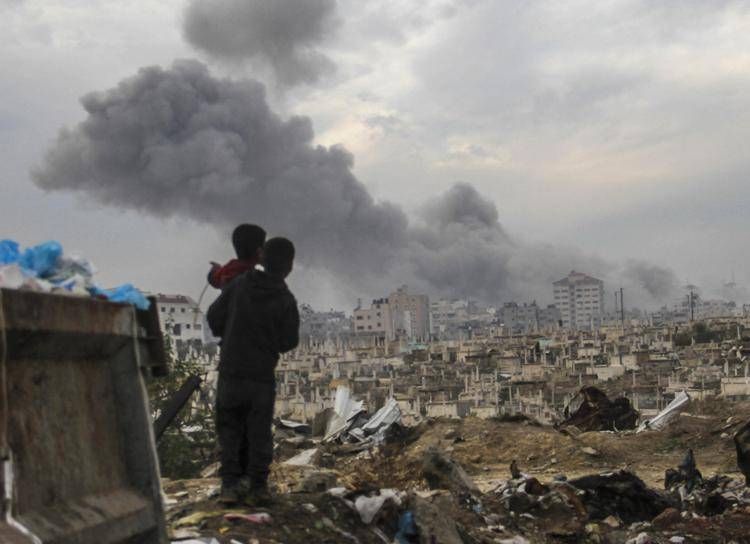
The plan for Gaza: Gulf States in the front line, key role for the Saudis
According to diplomatic sources and analysts, Saudi Arabia has a plan for Gaza, with the support of the Emirates and the approval of Washington. The Middle East reorganises itself around new geopolitical balances
During the World Government Summit in Dubai, Yusef Al Otaiba, the UAE’s ambassador to the United States, confirmed that there is a plan for Gaza on which some Gulf states already agreed last September. As reconstructed by Adnkronos, this plan would see the Gaza Strip become a strategic outlet on the Mediterranean for Saudi Arabia, with the involvement of the Emirates in the reconstruction. The agreement, however, would not be shared by Egypt, Qatar, Iran and Turkey, which oppose the initiative.
The United States, for its part, would focus on security and coastal development, with investments in hotels and resorts, as confirmed by President Donald Trump. However, the idea that Gaza could come under Saudi influence would not be new: even before Trump’s return to the White House, the hypothesis circulated among diplomatic and business delegations. According to some reconstructions, the project was discussed on 14 April, the day after the Iranian attack on Israel, during confidential meetings between Saudi and Israeli officials in Tel Aviv.
Riyadh’s geopolitical vision is part of a broader strategy aimed at strengthening Saudi influence in the Middle East, recognising a strategic role for Israel and a more marginal one for a reformed Iran. This approach, dubbed the ‘three-headed Middle East’, also envisages a strengthening of the Saudi-Jordanian axis, sealed by the marriage in 2023 between Rajwa al Saif, a member of a prominent Saudi family, and the Crown Prince of Jordan, Hussein.
In the current context, Trump’s strategy seems clear: to launch radical proposals and then negotiate solutions considered more acceptable by the other side. The US does not plan to send troops to Gaza, but could facilitate Saudi entry through logistical and diplomatic support. This approach would allow Riyadh not to expose itself directly, avoiding criticism from the Palestinian community and other regional powers.
Meanwhile, the situation on the ground remains tense. Egypt has strengthened its military presence on the border with Gaza, deploying four times as many tanks as stipulated in the peace agreements with Israel. The move would not be a prelude to offensive action, but rather an attempt to stem a possible flow of Palestinian refugees. Jordan is also in a delicate position: with a struggling economy, King Abdallah seems ready to accept an influx of refugees in exchange for economic aid.
More generally, the stabilisation of the Middle East now seems to be in the hands of the Gulf States, the only ones with the financial resources needed to redraw the future balance of the region.
THE LATEST NEWS
(Photo: © AndKronos)
-

 Primo Piano17 ore ago
Primo Piano17 ore agoGB, arrestato e poi rilasciato ex principe Andrea: accuse legate al caso Epstein
-

 Flash22 ore ago
Flash22 ore agoTentato rapimento in pista di pattinaggio a Scandicci, paura per un bambino
-

 News20 ore ago
News20 ore agoOmicidio a Scandicci: fermato uomo per la decapitazione di Silke Sauer
-

 International-News20 ore ago
International-News20 ore agoIran Protests: Radiographs Show Devastating Wounds



















